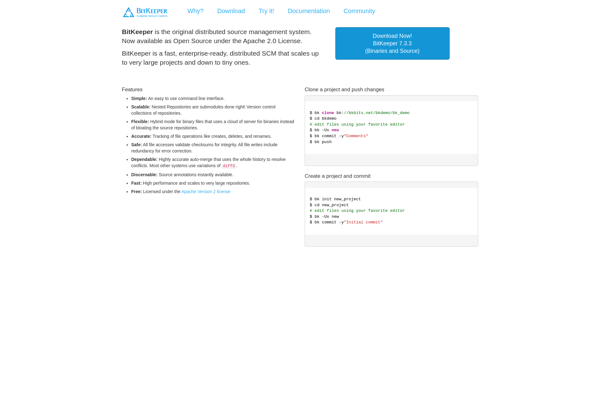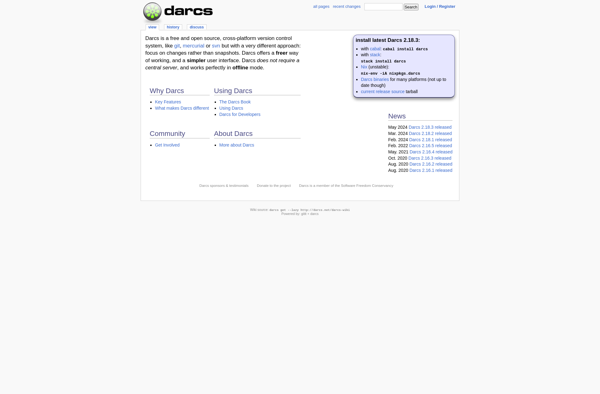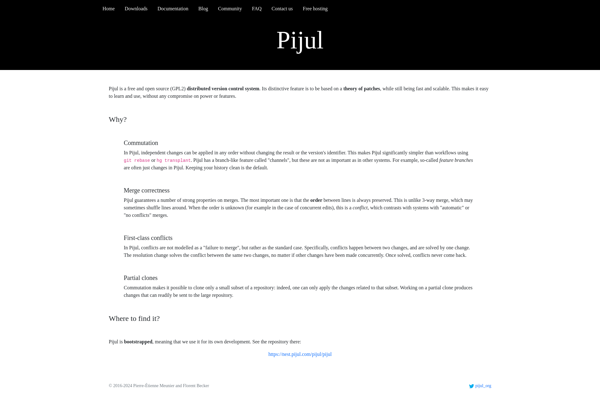BitKeeper

BitKeeper: Distributed Revision Control
A powerful source code management system allowing developers to work on local copies of a codebase and merge changes between distributed repositories.
What is BitKeeper?
BitKeeper is a proprietary distributed revision control system originally developed by Larry McVoy in 2002. It was created as an alternative to existing systems like CVS and Subversion which relied on a centralized server to store all code revisions.
Some key features of BitKeeper include:
- Distributed architecture - allows developers to have local working copies on their own machines and exchange changes through push/pull operations between repositories.
- Efficient branching and merging - makes it easy to create experimental branches and later reconcile them with the main codebase.
- Atomic commits - ensures related changes are committed together in a transactional manner.
- Cryptographic signatures - used to verify the integrity and origin of code changes.
- Web-based interface for code reviews and project management.
BitKeeper was the initial tool used to manage Linux kernel development in 2002 but was later replaced by Git in 2005 due to licensing disagreements. At its peak, it was used by major companies like Oracle and Google for projects like OpenSolaris and Google Code before migrating to other alternatives.
While not as popular today, BitKeeper pioneered concepts like distributed version control that influenced later systems such as Git and Mercurial.
BitKeeper Features
Features
- Distributed version control
- Allows developers to work independently on local copies of the code
- Supports branching and merging
- Access control and permissions
- Web-based interface
Pricing
- Free
- One-time Purchase
- Subscription-Based
Pros
Cons
Official Links
Reviews & Ratings
Login to ReviewThe Best BitKeeper Alternatives
Top Development and Version Control Systems and other similar apps like BitKeeper
Here are some alternatives to BitKeeper:
Suggest an alternative ❐Mercurial SCM

Darcs

Artefactual AtoM

Pijul
